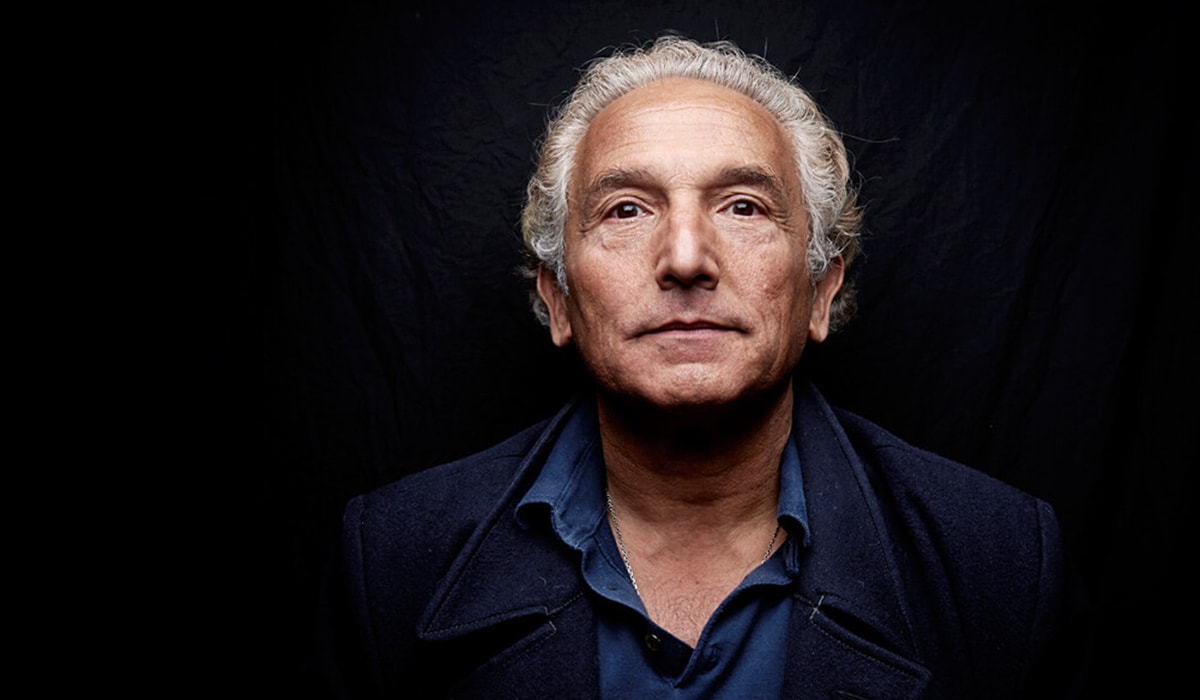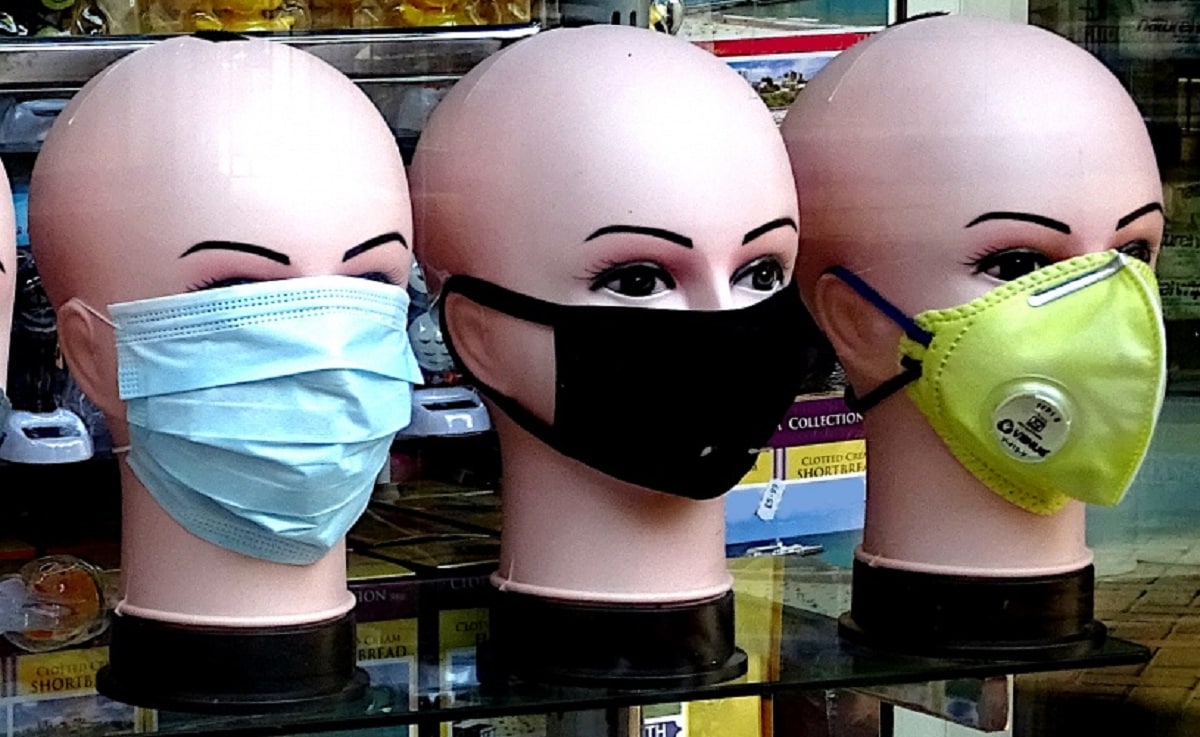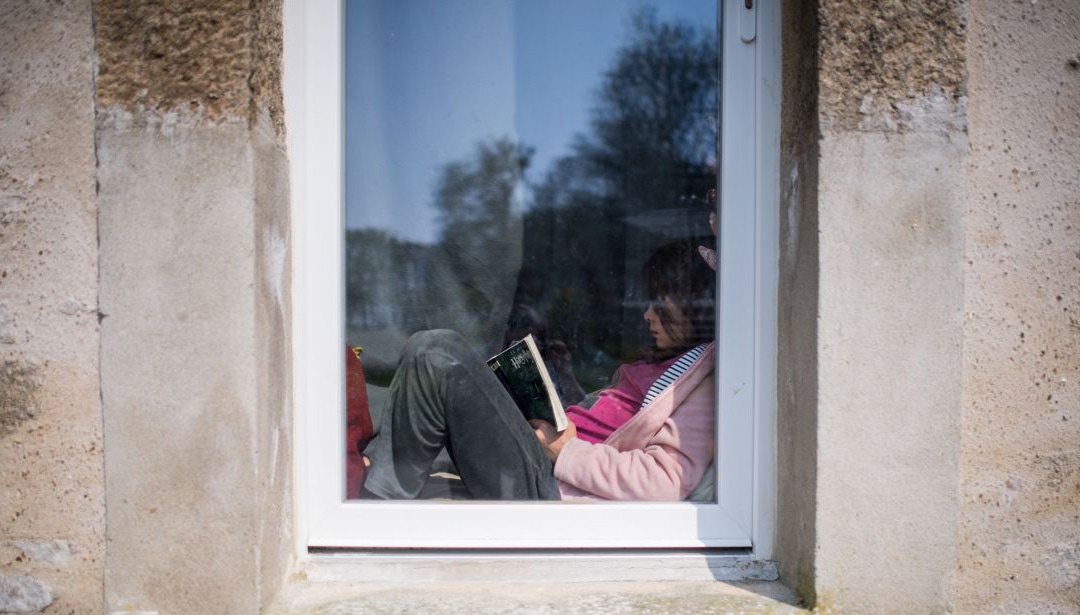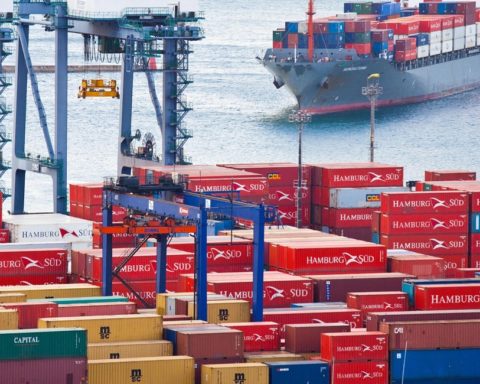Today we are witnessing a historic and unprecedented event: for the first time, the whole of humanity is producing an image of the threat. What is at stake is the emergence of a shared experience of the fragility of ecological systems that has hitherto been denied and crushed by economic interests. The coronavirus is the critical point that marks a point of no return from which our relationship to the world and the place of humans in ecosystems must be profoundly questioned. The philosopher and psychoanalyst Miguel Benasayag invites UP' readers to make the effort, despite the horror of the situation, not to give up thinking. Thinking in the form of a manifesto for action in times of pandemics.
Small Manifesto in Times of Pandemic
We propose in this "Little Manifesto" five lines of thought and practical hypotheses to share, for those who would be interested. We hope that this will be a useful contribution to think and act in the darkness of complexity.
The return of the bodies
During the last forty years, we have witnessed the triumph and undisputed domination of the neo-liberal system in every corner of the planet. Among the various trends in this type of system, one in particular seems to be the forma mentis of the time: that of considering bodies as mere background noise that disturbs the narrative of power. For real bodies, always too "heavy" and too opaque, desirable and alive, escape the linear logics of predictability. The aim of neo-liberal policies and practices has always been to deterritorialize these bodies, to virtualize them, to turn them into a raw material that can be manipulated, a "human capital" to be used at will in the market circuits. They are required to be disciplined, movable without criteria, flexible, ready to adapt (the leitmotif of our time) to the needs determined by the
In the techno-scientific world, this tendency is expressed in the form of an "everything is possible" that recognizes no biological or cultural limit to the pathological desire for organic deregulation. It is now a question of increasing the mechanisms of living things, of the possibilité́ desire to live a thousand years, or even to become immortal! It is nothing less than the will to produce a post-organic life in which we can overcome the constraints of bodies, which are by nature too imperfect and too fragile. The catastrophic acceleration of the Anthropocene over the last thirty years bears witness to the disastrous effects of this technicist "everything is possible" that not only ignores but crushes the profound singularities of organic processes.
In amazement, the leaders of world finance realized that the economy, their sacred monster, could not finally do without living slaves to function.It was in this world, convinced that it could get rid of the limitations of the living that the pandemic arose. Catastrophically and under the effect of the threat, we suddenly realize that bodies are back. They have suddenly become the main subjects of the situation and of the policies implemented. Bodies remember us. And this return seems to open a new metaphorical window from which we can glimpse several possibilities for action. First of all, we must realize that the authorities can, when they want, implement the policies necessary to protect and safeguard the living. The King is naked! In amazement, the leaders of world finance realized that the economy, their sacred monster, could not finally do without living slaves to function. After trying to persuade us that the only serious "reality" of this world was determined by the demands of the world's population, they decided that the only serious "reality" of this world was that it was not possible to have a living slave.
It would be a mistake to believe that the collective nature of the threat would magically erase the disparities between the bodies.However, we should not let one fiction chase another. The neo-liberalism that maintained the illusion of a society made up of serialized and autonomous individuals has been replaced in recent weeks by another imaginary narrative that claims that we are all now "in the same boat". Far be it from us to criticize this invitation to solidarity. It would nevertheless be a mistake to believe that the collective nature of the threat would magically erase the disparities between bodies.
Class, gender, economic domination, military violence or patriarchal oppression are all realities that situate our bodies differently, so let us not be lulled by this romanticism of confinement that aims, to the sound of the bugle, to make us forget these differences.
The emergence of a shared image
We are all living in the shadow of a major and widespread threat: that of a global ecological disruption whose increasingly massive effects (global warming, collapse of biodiversity, air and ocean pollution, depletion of natural resources...) are already affecting all living things and human societies. It is certain today that a majority of people are affected and perceive (in the neurophysiological sense) this reality. Nevertheless, for most of us, everything is happening as if the disaster, announced not tomorrow but today, was not identified as concrete and immediate. The perception is very real. But it remains at a diffuse level and not experienced directly. We are, so to speak, immersed in the threat. It constitutes our atmosphere. And yet we are unable to produce a knowledge of its causes, the only one capable of forming a concrete image of the danger which
Faced with threats that are conscious but experienced as abstractions, we remain paralysed by anxiety. Conversely, in the presence of an identified cause, it is fear that we feel. And fear, unlike anguish without an object, pushes us to act.
To better understand this point, it is useful to return to the distinction, proposed by the German philosopher Leibniz and taken up again in neurophysiology, between perception and aperception. The human being, like all living organisms, exists in a constant material interaction with its environment. Perception is part of this first level made up of all the perceptive couplings that the organism establishes with its physicochemical and energetic environment. To illustrate this device, Leibniz gives the example of how we perceive the noise of a wave. He explains that we have an infinitesimal perception of the millions of water droplets that affect the auditory nerve without being able to perceive the noise of each of the water drops. It is only at a second level, in the dimension of organized bodies, that we can construct the sound image of a wave. This means that only a small part of what we perceive
The central question is therefore to understand when and why an aperception emerges, which is first determined by the perceiving organism: a mammal and an insect will obviously not produce the same aperceptive image of a wave. In the case of social animals, and in particular humans, aperception is also conditioned by the culture and the technical instruments with which they interact. Ultrasound is a good example of how these arrangements work. Unlike some mammals, humans do not perceive these sound frequencies without articulating their perceptive system with machines that allow a new dimension of aperception to emerge.
Today we are witnessing a historic and unprecedented event: for the first time, the whole of humanity is producing a picture of the threat.On the other hand, if the aperceptive level participates in the singularity that designates the organic unit, it is not to be considered as the proper of an individual or the result of individual subjectivity. A singularity can be composed by a group of individuals, moreover of a very diverse nature (animal, vegetable or even an ecosystem), which participates in the production of a common aperceptive surface. Far from being a kind of super-organism that would exist in itself, this dimension exists in a distributive way within the bodies that are captured by it. Thus, each individual body is affected. The bodies participate in the creation of this common aperceptive dimension which, in turn, influences and structures the bodies. In everyday life, this dimension manifests itself in the form of what we are accustomed to call common sense, which acts socially as a true instance of shared sense.
What is deeply at stake is the emergence of a shared experience of the fragility of ecological systems.Today we are witnessing a historic and unprecedented event: for the first time, the whole of humanity is producing an image of the threat. This image does not reduce to a scientific knowledge of the facts that led to the emergence and spread of the virus. What is deeply at stake is the emergence of a shared experience of the fragility of ecological systems that had hitherto been denied and crushed by the macro-economic interests of neo-liberalism.
The particularity of this common understanding lies in the context of its emergence. Paradoxically, it is not the intrinsic dangerousness of the pandemic that brings it about, but rather the disciplinary system that accompanies it. It is this system, and not the threat itself, that puts us in a new situation. Obviously, we cannot understand it by assessing it solely from the point of view of its health dimension. It is this pitfall that leads some people to engage in risky and macabre accounting to challenge the novelty of the crisis by comparing it to other scourges. Faced with this new situation, we thus see two opposing interpretations emerge. On the one hand, those who claim that this is a very serious fact for which a solution in the form of a vaccine or a drug would have to be found. In this understanding of the crisis, there is obviously no question of returning to the caucus.
An experience of the common
If we make the effort, despite the horror of the situation, not to give up thinking, it is possible to glimpse the only thing that this crisis allows us to experience positively: the reality of the bonds that constitute us. Here again, however, we must guard against any naive vision. We are not equal in the face of our interiority. And when the frenzy of daily life no longer allows us to avoid ourselves, some of us realize that they have very bad bonds with themselves and, incidentally, with those around them. In a closed environment, the real hell is often oneself, a self-hatred that always ends up turning into hell for others.
From our confined lives, we become aware that we are territorialized beings, unable to live exclusively in a virtual way, putting aside any element of corporeality. Millions of individuals today experience in their bodies that life is not something strictly personal.
The much lauded virtues of the world of communication and its instruments are proving quite powerless to bring us out of isolation; at best, they manage to maintain the illusion of reuniting the separated as separated.
In the midst of the crisis, we have acquired at least one certainty: no one can save himself or herself. Willingly or unwillingly, our contemporaries experience the fragility of the bonds that finally force us to overcome the illusion of the autonomous and serialized individual. We understand that it is not a question of being strong or weak, "winners" or "losers", but that we all exist, all of us, through this fragility that allows us to feel our belonging to the common. Individual life and social life finally appear to us as two sides of the same coin. Forced into isolation, we discover that we are traversed by multiple bonds that do not correspond in any way to the Thatcherian design according to which "there is no society" but only individuals.
It is the desire of the common (desire for life), not the threat, that allows us to act in this situation. In this tilting movement, our usual points of reference are reversed: it is no longer just a question of myself and my individual life. What matters now is what this life is inserted into, this fabric through which it acquires meaning.
At a time when links are reduced to pure communicational virtuality, it seems fundamental to us to think about the limits of this abstraction. To think about what cannot be experienced through Skype or any social network. In short, to think about everything that constitutes in the end the singularity of our bodies and their experiences.
Against biopower
Not only has the window opened on new positive possibilities, but the experience we are living through offers biopower an unprecedented field of experimentation: the control and monitoring of populations on the scale of entire countries and continents. It is always surprising (and even worrying) to observe how quickly individuals allow themselves to be disciplined when the banner of survival is waved. Let us also recognize that there is something tragicomic in noting that the geolocalization of individuals implies that they do not nourish the terrible and perverse idea of simply leaving their smartphone on the bedside table. Voluntary servitude is at its peak when the prisoner's electronic bracelet becomes an expensively acquired telephone. This novel experiment in social control could then serve as a dress rehearsal. It is easy to imagine that in the future, it will not be difficult to invoke the emerging
Our objective is not to win a battle but to assume the fragility of the world by radically changing the way we live in it.In this context, the question of whether or not we are at war with the virus is not just a rhetorical debate, first because it has concrete legal implications, and second because it gives us an indication of how this crisis can give rise to lasting authoritarian practices. We are not at war. This virile and conquering vision is in fact itself part of the problem. We are suffering the consequences of an aberrant and deadly economic and social regime. Let us beware of these martial discourses and the drum rolls that always precede the sacrifice of the people. Our objective is not to win a battle but to assume the fragility of the world by radically changing the way it is inhabited.
Otherwise, once the pandemic is over, the government will not hesitate, with its accents of victorious marshal, to enlist the population behind the cause of the economic homeland. We will then be told that it is no longer the time to think or protest for structural social changes (improvements, for example, in the health systems). Any demand for social justice will therefore be seen as a betrayal of the homeland, because the time has come for the sacred task of restoring the economy and growth.
The official story will first tell us that we have experienced, faced and overcome an unfortunate and unpredictable accident. It will then explain that we must redouble our efforts to overcome nature's resistance to human omnipotence. What irresponsibly they will call an accident was in fact so unpredictable that biologists and epidemiologists had been anticipating it for twenty-five years. Among the many vectors that cause emerging and re-emerging diseases, we know that the destruction of the metabolic regulation mechanisms of ecosystems, linked in particular to deforestation, plays a predominant role. Moreover, uncontrolled urbanization and the constant pressure of human activities on natural environments favour situations of unprecedented promiscuity between species.
Whatever the reaction of governments, one thing is certain: a new dimension of insight, a new image, of ecological disaster has emerged and is becoming part of common sense. The device according to which the human being was the subject who was to set himself up as master and possessor of nature appears to us under its true nightmarish face.
Thinking and acting in the present situation
As Proust wrote, "As Proust wrote, " facts never penetrate the world where our beliefs live. "There are no "neutral" facts that express a meaning in themselves. Every fact exists only in an interpretative whole that gives it meaning and validity.
Science deals with facts while at the same time constructing its own interpretative narrative. Contrary to what scientism claims, scientific activity does not consist in producing simple aggregates of bare facts. The narrative through which science orders facts emerges from an interaction with other dimensions such as art, social struggles, affective imagination and more generally lived experience. All these dimensions participate in the production of common sense.
There is a much deeper conflictual relationship between critical thinking and common sense that we cannot oppose.In the face of the complexity of the world, the reactionary temptation invites us to delegate our power to act to technocrats, if not directly to algorithmic machines. In this oligarchic vision, scientists know, politicians follow and the good people obey. But there is a much deeper conflictual relationship between critical thinking and common sense that we cannot oppose. The role of structured thinking is certainly not to order and discipline common sense, but rather to add dimensions of meaning that can then become majority and hegemonic. This is why any emancipatory project, far from representing the unveiling of a hidden scene of truth, is always a free creation of a new subjectivity.
The fantasy of projecting oneself into the great feast that will follow the day of liberation implies, in its understandable naivety, forgetting the processes that have led us to the present situation. And yet these processes will not retreat when the day comes like a defeated army. They will continue to rage in various forms. It is necessary that this crisis should not end in the relieved applause of a won war. This historic event opens the door to a common insight into the bonds of fragility that make up our world.
We must coexist with a structural non-knowledge that is not ignorance but a requirement for the development of all knowledge.We don't know what lies ahead, and we have no pretensions to predict it, but we do know that the reactionary forces of the entire planet will be ready to take advantage of the astonishment we will still be in. So, in the midst of this dark and threatening situation, we must face this reality, not by wisely waiting "for it to pass", but by already preparing the conditions and links here that will allow us to resist the advance of biopower and control.
This crisis situation must not lead us to an increase in the delegation of our responsibility. We will have seen that the "greats of this world" (these moral dwarves), by talking to us about war, once again want to make us their "cannon fodder" human resources. Only a clear opposition to the neoliberal world of finance and pure profit, only a claim to real bodies not subject to the pure virtual world of the algorithmic world can today be our objectives.
As in any complex situation, we have to coexist with a structural non-knowledge that is not ignorance but a requirement for the development of all knowledge. It is not, therefore, a question of thinking about the day after while living the present as a mere parenthesis. Our life is happening today. That is why this little manifesto is a call to those who wish to imagine, think and act in and for our present.
Miguel Benasayagwith Bastien Cany, Angélique del Rey, Teodoro Cohen, Maeva Musso, Maud Rivière. For the "Maud Rivière. " Collectif Malgré Tout "
Born in Buenos Aires in 1953, philosopher, psychoanalyst, researcher in epistemology, Miguel Benasayag is the author of numerous books (The Tyranny of AlgorithmsText, 2019; Function or existLe Pommier 2018; The Singularity of LifeLe Pommier 2017; Brain increased, man decreasedQuestioning our modernity, he affirms the need for a humanist approach. He animates the collective "Malgré tout" (In spite of everything).













Good morning, sir,
Someone who can explain to me what the author means?